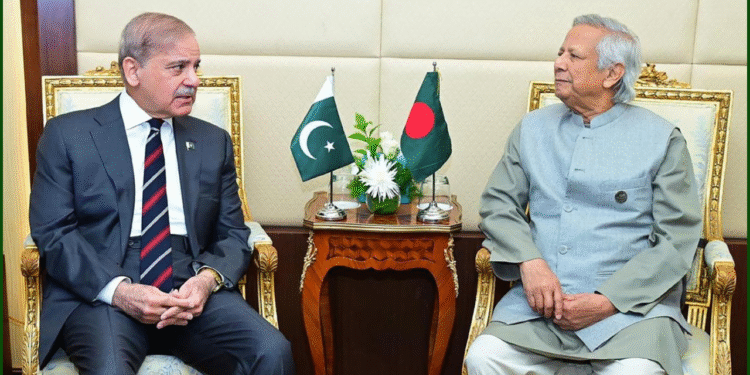A provocative social media post by a retired Bangladeshi army officer has ignited diplomatic concerns across South Asia, escalating tensions in an already volatile region. Major General (Retd.) ALM Fazlur Rahman, a prominent figure linked to Bangladesh’s interim government, suggested that Bangladesh should forge a military alliance with China to seize India’s northeastern states in the event of an Indian attack on Pakistan. The remarks, posted on Rahman’s personal Facebook account, come amid strained India-Pakistan relations following a recent militant attack in Pahalgam, located in Indian-administered Jammu and Kashmir.
Rahman, who serves as chairman of the National Independent Commission under Chief Adviser Muhammad Yunus, argued that India’s northeastern region, often referred to as the “seven sisters,” is geographically vulnerable due to its landlocked position. He proposed that Bangladesh could exploit this strategic weakness by partnering with China to launch a coordinated military operation if India escalates tensions with Pakistan. The post has drawn sharp attention due to Rahman’s proximity to the interim government and his influential role in national discourse.
The comments follow earlier statements by Chief Adviser Yunus during a March visit to Beijing, where he positioned Bangladesh as a key player in securing the Indian Ocean region and sought deeper economic ties with China. These remarks had already drawn a strong rebuke from New Delhi, which viewed them as undermining India’s regional authority. In retaliation, India revoked certain transhipment privileges for Bangladesh in April, while continuing to allow access for Nepal and Bhutan under international trade agreements.
Bangladesh’s Foreign Ministry swiftly moved to contain the fallout from Rahman’s statement, issuing a public clarification. “The views expressed by the retired officer are his own and do not represent the stance of the Government of Bangladesh,” the ministry said in a press release. “We categorically reject such provocative rhetoric and remain committed to fostering peaceful relations with all neighboring countries.”
The controversy has amplified concerns about Bangladesh’s foreign policy direction under the interim government, particularly its growing alignment with China. Analysts suggest that Rahman’s remarks, while not official policy, could signal underlying sentiments within certain factions of Bangladesh’s political and military elite. The proposal for a China-Bangladesh axis also raises questions about the broader geopolitical contest in South Asia, where India and China have long competed for influence.
In India, political leaders across party lines condemned Rahman’s statement, with some calling for diplomatic measures to address Bangladesh’s perceived provocations. The Indian Ministry of External Affairs has yet to issue an official response, but sources indicate that New Delhi is closely monitoring the situation.
As tensions simmer, the region braces for potential diplomatic repercussions. Rahman’s post, though disavowed by Dhaka, underscores the fragile balance of power in South Asia and the risks of inflammatory rhetoric in an already polarized environment.

















































